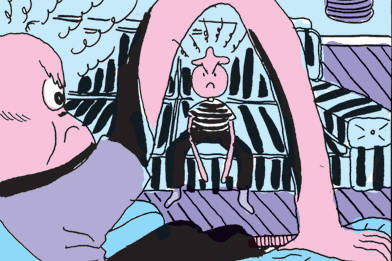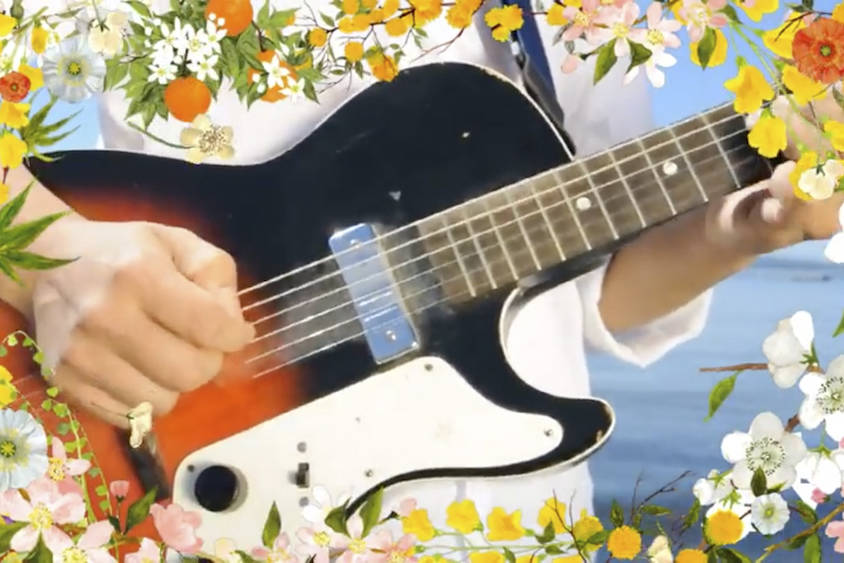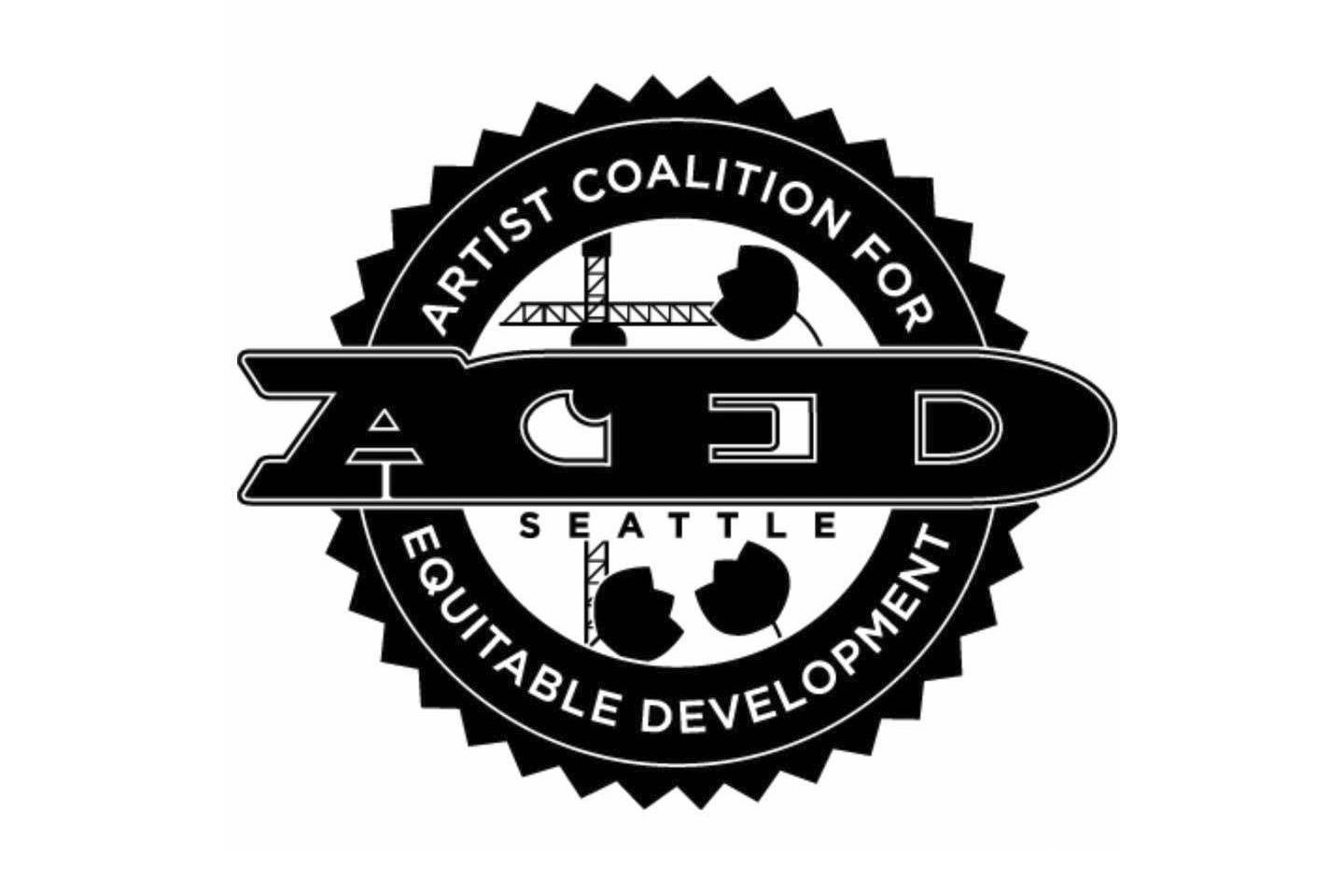Woof. What a garbage month. If the never-ending five-alarm trash fire of humanity got you down in June, you weren’t alone. Whether it was the boldening of rape culture, violence against the LGBTQ community, the triumph of xenophobia, or all of the above, it seems like the shit hit the fan, and then that fan spewed it all into a larger fan, which then exploded. Music helps, though, and this month the local scene produced some amazing records fit for any and all feelings you might have after slogging through this bummer month: total rage, the desperate need to chill out and transcend, sadness, coming to terms with how weird it is to be a human being, etc. Put one of these albums on the next time the feels start welling up, and try to visualize a July where we all fare better:
G.L.O.S.S.
Trans Day of Revenge
Last week Michael Volz was walking to their car after a Neumos fundraiser for the victims of the Orlando shooting when they were jumped and beaten. “Happy pride!” the man said immediately before the attack—choking, punching, and kneeing Volz, calling them a “tranny bitch.” That this kind of revolting violence happened on Capitol Hill, Seattle’s supposed “gayborhood,” just a few days before the start of the Trans Pride march is one of the many reasons why G.L.O.S.S. is needed more than ever. Short for “Girls Living Outside Society’s Shit,” the queer Olympia hardcore band’s music is the sonic equivalent of a brass-knuckle punch in the face of bigots, fear-mongering politicians, and the systemic structures that continue to dehumanize LGBTQ folks across the United States. Each blistering song is its own manifesto—“Give Violence a Chance,” “Fight,” “We Live”—with lead singer Sadie Switchblade’s seismic screams calling for principled, take-no-prisoners revolt against those who would harm the queer community. “Fight for your life,” she yells, “We’ve got to stand up and mask up and drive out their kind! Sleep with a hammer!” For some, calls for violence will never be justified—but there’s a striking purity to G.L.O.S.S.’ aggression. When society devolves into unprovoked, hate-driven attacks like the ones on Capitol Hill or in Orlando, the options are hopelessness or action. G.L.O.S.S. is a resounding, life-affirming call for the latter. Content and message aside, in case you were wondering, the band’s music also just straight-up kicks serious ass.
Gifted Gab
Gab the Most High
When folks talk about the long-overdue national recognition Seattle’s hip-hop scene deserves, the Central District’s Gifted Gab is usually at the top of the list. Her complex lyrical prowess is the product of intense study, rapping lines with the proficiency and clarity of hip-hop’s golden-era greats like the Fugees and Missy Elliott. Gab’s put out a string of solid records, like G-Shit and Girl Rap, but Gab the Most High is easily her most complete album yet. For one, her attention to melody is the clearest it’s ever been. “Lit,” a feel-good G-Funk ode, and “Gettin’ Smokay,” built on a vocal sample and a clattering, cartoony rhythm, both find her singing earwormy hooks that merit repeat listens. The bring-it-all-back melodic chorus is something a lot of local rappers forgo, focused intently on proving their dense lyricism to audiences, but Gab manages to do both exceedingly well. This is due in part to the other success of Gab the Most High: The MC totally owns her ’90s-era influences. Rather than simply paying homage as she’s done in the past, she makes them her own here. Gab has previously been held up as something of a Queen Latifah disciple (which her record Queen La’Chiefah certainly encouraged), and there are definitely echoes of her in both the production and lyricism on Gab the Most High. But thanks to the Seattle MC’s particular filter and perspective, stronger than ever here, those influences have fermented into something that feels more nuanced and fully baked than your typical throwback record. If it’s any indication, Gab’s only going up from here.
OC Notes
Rap Loops II
Swimming through the sea of instrumentals on this (bonus songs included) 85-track album can be a little overwhelming, but it’s worth the trek. Classic funk and world-record flips, old-school boom bap, and strange experiments abound; “Piggy Back Ride” sounds like it could be the theme to one of Bowser’s castles. The record is at its best when it completely bucks any kind of lineage and gets weird—something OC Notes, the Seattle musician and Black Constellation member who traverses many different styles, is wont to do. “Clap Your Hands” sounds as though OC Notes threw the shuffling beat in a frying pan, let it sizzle, then tossed it into a black hole—crackling and simmering backward through a time warp. “Digiorno,” probably the trippiest song about pizza you’ve ever heard, rides a hi-hat in and out of spaceship bleep-bloops and sudden ’50s crooner samples. “Guitar Lord” makes excellent use of its titular instrument, strangling sickly, squelching waves out of the strings atop a fat, bouncing bass line. But the real highlight comes at the end of the record, when OC Notes and a crew of local MCs—Astro King Phoenix, EFF is H of Kung Foo Grip, Slick Devious, and more—show off their skills on a selection of the preceding instrumentals. When Porter Ray jumps on “Can You Feel That,” he turns the subdued jazz track into a total dream, bringing out the palpable hypnagogic vibe that lies thick over the whole record.
Benoît Pioulard
Seize/Marre and Radial
There’s a thick gauze layered over all of Benoît Pioulard’s gorgeous work—the kind of primordial ambient hum that might waft through your mind if you were floating, eyes closed, in an isolation tank. The Seattle-based songwriter flirts with classic guitar-based folk on his structural tunes that include lyrics—for example, “Seize,” the A-side of his excellent new 7˝ single Seize/Marre. But even when there are detectable chords and words, Pioulard seems far more interested in the ephemeral traces the notes and melodies leave behind than anything else. On Radial, Pioulard’s second release this month, he basks in that fleeting warmth, conjuring three instrumental, atmospheric soundscapes that languidly drift by like a fondly remembered sunny day. Despite its 22-minute run time, lead track “The very center of its flame” passes by surprisingly quickly, thanks in part to the meditative effect its womb-like ether induces. While there’s nary a beat in sight, fans of Boards of Canada’s nostalgic, sepia-saturated palette will love Pioulard’s warbling aural fields. It’s healing music, in more ways than one: Radial was named after the wrist fracture Pioulard got during a recent hike in North Bend, and the album’s proceeds are going toward his medical expenses.
ksears@seattleweekly.com








